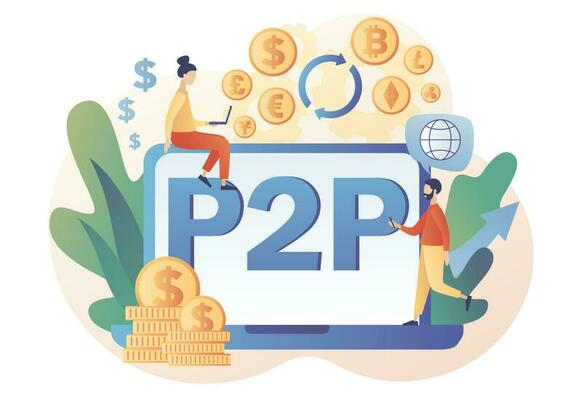In today’s fast-paced business world, both retailers and consumers profit from e-commerce mobile application development. The first phase provides an opportunity to develop the business into international markets at a much smaller expense than an offline business would. For the typical user, eCommerce streamlines the entire buying process by allowing them to evaluate items and services and their costs and make worldwide judgments without regard for the existing quo.
The burgeoning eCommerce industry creates numerous obstacles and intensifies competition among established players. It is not easy to navigate these obstacles and shifting client expectations, even more so for newcomers. In this scenario, startups and tiny eCommerce businesses are particularly vulnerable. eCommerce mobile applications can assist in this case. They have the potential to alter how you interact with your consumers.
If you own an eCommerce firm, you must acknowledge and accept this reality. With everything moving in the direction of mobile, your eCommerce store can never achieve its goal without the addition of a mobile app. The following are the reasons why your business requires a mobile eCommerce application.
Increased Conversion Rates
There is no doubt that Mobile eCommerce Apps result in increased conversion rates. And, ultimately, it is all that matters since it generates revenue. Therefore, if you are an eCommerce business owner, you may be wondering, “Why do I need a mobile app?” Optimizing conversion rates is the solution. When clients purchase a product, they want a flawless purchasing experience, which you may provide through a mobile app. There are numerous causes for this:
- Mobile applications include conversion-enhancing features such as push notifications.
- All information (payment and shipping) is saved in mobile apps for quick checkouts.
- Mobile apps can place orders by utilizing device characteristics such as cameras.
Additionally, you can integrate mobile wallets into your eCommerce app to streamline the checkout process. These apps reduce the amount of information that customers must submit during the checkout process. As a result, eCommerce is viewed as a more straightforward and convenient route than other channels, boosting enterprises’ total profitability.
Improving the Customer Experience
Mobile applications are simple to use and quick to access. The customer will launch the app in a few clicks regardless of whether he is in his car, at work, or at a cafe with his friends. This considerably enhances the likelihood that someone will purchase from your e-store. If the app is tailored to a certain platform (iOS or Android), it ensures a seamless user experience and optimal performance for clients. A fast-loading and easily accessible e-commerce application will attract more potential customers.
Access to Native-Phone Features
Mobile apps allow for utilizing the phone’s native capabilities, which is not possible with mobile websites. The incorporation of built-in smartphone components such as GPS and cameras enhances the user experience. Interactive shopping via augmented and virtual reality is a feature exclusive to the app. Another advantage is that native apps can be used offline. While the apps take up space on the user’s device, they can be used without an internet connection, providing users with an on-the-go shopping experience.
Customers’ preference for mobile apps over websites is unsurprising. Ecommerce apps are simple to use when purchasing, even more so if you never visit an online business. To begin, there is no need to memorize the URL or to log in to the store. Additionally, the programs provide greater security and performance than the mobile browser.
Mobile Commerce Is Increasing In Popularity
Mobile device sales have fully dominated the eCommerce business. The public is already accustomed to purchasing via mobile devices. It’s simply more convenient than waiting for a computer to boot up. Our phones are always within arm’s reach. However, a laptop or desktop computer is not always.
Consumers purchase from a variety of sources. Mobile commerce enables customers to purchase on the bus, train, or Uber. They shop online during their lunch break or while strolling down the street with a cup of coffee. It’s simply too simple. With mobile sales expected to continue to grow in the future years, the best approach for your eCommerce site to capture a piece of the pie is through mobile application development.
To be sure, mobile shopping apps are increasing at a 54 percent annual rate. This is the highest rate of any app category. Mobile sales dominate the eCommerce sector. Shopping applications are increasing at a quicker rate than any other form of app on the market. As a result, you’ll automatically recognize that eCommerce applications contribute to mobile commerce sales.
Customize the Shopping Experience:
The collecting of data is an integral part of the digital commerce ecosystem. Enter any digital commerce platform, and the system will have access to the user’s purchase history, browsing tendencies, demographic profiles, and personal preferences, among other identifiers. As technology advances, the ability to create individual-level profiles of purchasing behavior will improve considerably, culminating in enhanced, real-time responses to path-to-purchase changes via personalization.
In terms of data mining and tailored experiences, artificial intelligence (AI) and machine learning (ML) are fast altering the retail sector. These technologies take advantage of consumers’ propensity for intuitive interactions. Retailers can use smart apps to tailor their products and inventory to a consumer’s shifting preferences. Additionally, businesses can employ contextual marketing methods that are both relevant and beneficial to the consumer.
Brand Recognition
Improved Brand Recognition is one of the most compelling benefits of Mobile Commerce and a compelling incentive to design a Mobile eCommerce App. Because most customers spend their time on their mobile devices, firms can easily connect with them via a mobile e-commerce platform. However, a brand must provide an exceptional mobile app experience that people adore. Additionally, to maximize the effectiveness of your eCommerce app branding, you must respond to all client inquiries. The more information a brand has about its consumers, the more effective it will resolve their pain points.
Increase the Average Value Of Orders
As previously proven, a mobile app enhances the customer experience and also raises conversion rates. However, these are not the only financial perks associated with developing an app for your eCommerce business. Given how many products are browsed per session on mobile apps, this makes sense. When people shop via a mobile app, it’s easier for them to browse. This provides them with a greater potential to see what you have to offer. The average order value for mobile apps is higher than the average order value for mobile browsers and desktop displays.
Enhance Marketing Communications
When making a significant business choice, it’s natural to get enthused about the sales data. While an app for your eCommerce store is certain to increase sales, this appears to be moving above and beyond. Mobile applications are a marketer’s dream. You may eventually create even more revenue from your present and prospective clients by optimizing your marketing activities.
Without a mobile app, you must rely on users to directly navigate your website to increase conversions. However, how frequently does the same user need to return to your website? Even your most loyal consumers will not require purchases on a daily or even weekly basis. As a result, you invest marketing resources in email communication and social media initiatives in an attempt to contact your client base via alternative means. However, with a mobile application, you’ll have a more effective communication method with your customers—push alerts.
Push notifications, without a doubt, are the superior method of communicating with your customers. That is because the user is not required to take any action. To reach a consumer using social media, you must rely on them using the platform, noticing your post or ad, clicking through to the website, and then converting. There are too many steps.
The same is true for email correspondence. To visit your website, a person must first sign up to get emails through you, read your message, absorb the content, and click a link. Push notification enables a message to appear straight on a user’s home screen, similar to a text message. When the user opens that message, they will be brought directly to the app, making it far easier for them to purchase.
Loyalty of Customers
Mobile application development might assist you in establishing consumer loyalty. How? To begin, it serves as a continual reminder of your presence. Customers see your logo and app every time they use their phones. Additionally, statistics show that 60% of consumers prefer to utilize their preferred app when shopping. Therefore, consider developing a robust and scalable software package that your clients would like. They will then give nice reviews on Google Play or the Apple Store, encouraging other people to download it as well.
Increased Efficiency and Revenue
Mobile applications are seen as more managed and user-friendly than desktop applications. Even though its implementation is sometimes characterized as pricey, they are frequently capable of meeting client needs and significantly increasing sales. The association is straightforward: a superb mobile app with the appropriate concept and functionality increases customer acquisition. Increased client traffic results in increased orders, which implies your profits increase. Another technology that aids in brand reputation management and sales growth is called ‘Push Notifications.’ Businesses can use push notifications to communicate rapidly with their customers and encourage them to place immediate orders.
Reduction in Response Time.
What concerns each internet user is the speed with which a website or app can load. Because mobile applications save their data significantly on mobile devices, the time required to accomplish an action is significantly less than a website. As a result, programs can access data extremely quickly.
Can Be Accessed Offline
Mobile applications can be utilized in conjunction with or in the absence of an Internet connection. This is a significant benefit for any e-commerce company. In this manner, you can ensure that your customers always have access to your products and important functionalities. Customers can peruse their saved goods and, on occasion, make a purchase.
Conclusion
Online purchasing has had a significant impact on contemporary business and entrepreneurship. Any e-commerce website owner who wishes to remain competitive must keep an eye on the latest technological advances. Only in this manner can business owners thrive in today’s extremely dynamic economy. Mobile shopping continues to expand its market reach, recruiting thousands of new consumers daily.
According to a Google study, approximately 60% of smartphone owners regularly use their phones to monitor pricing, products, and even to make purchases. Therefore, to avoid losing potential clients and expanding your market reach, you should strongly consider developing a smartphone app for your e-commerce enterprise.
The reality is that buyers are hesitant to support a company that lacks an online presence, and phone apps are increasingly becoming ingrained in the lives of connected consumers. When buyers are empowered to engage with brands in a digital environment, the likelihood of developing a loyal customer base increase considerably. To that end, merchants should prioritize developing a mobile strategy.
With the above aspects in mind, it’s easy to see how a Mobile eCommerce App benefits your online business by increasing client engagement and connecting you with your target audience. Therefore, if you want to establish a strong clientele and increase your revenue, following the steps above will be your first significant step toward popularity and conversions.

Suggested Reads:
[catlist categorypage=”yes”]



